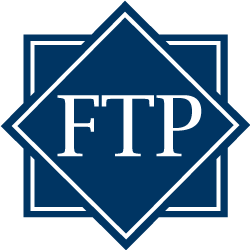While blockchain is far from a new topic of conversation, the buzz surrounding this decentralized, ledger continues to grow as industries begin unlocking its potential.
Initially launched as a vessel for bitcoin, the world has started exploring the applications of blockchain technology beyond cryptocurrencies and banking.
A blockchain is a database with a growing list of records organized in chronological blocks of data. Each block is timestamped and linked to a preceding block. Because of its secure, peer-to-peer function and public transaction processing, blockchain promises speed and transparency.
The Accenture report Banking on Blockchain predicts that blockchain could create savings of over 30 percent in the middle and back office. It specifically claims that these databases could cut compliance costs in half.
Blockchain Payments
Blockchain’s most obvious area of impact relates to the e-payment opportunities it opens up. JPMorgan, Mastercard and IBM all leverage this technology in order to deliver faster, cheaper international payments. Gloneta, the blockchain-based messenger application from Luxembourg startup SnapSwap, lets users make free micro transactions during a chat.
Mastercard’s blockchain uniquely operates without a cryptocurrency. One could interpret this decision as a reflection of a global attitude still weary of bitcoin.
The new reality of frictionless payments and fewer intermediaries will profoundly affect the financial industry and should improve the customer experience.
Smart contracts
Today, smart contracts are producing most of the enthusiasm. Mainstream politics and business have become fascinated by the possibilities of blockchain-supported, independent smart contracts, which could overhaul the legal system as we know it. Even civil life, from healthcare services to court hearings could be transformed.
The UK recently became the first country to introduce an online divorce process. Given the security, accountability and permanence of blockchain, it might not be long before we see marriages, adoptions and other lengthly legal procedures occurring with lightning speed and at a fraction of the cost.
Relevant parties set conditions, which are coded into the blockchain, and the contract self executes when those conditions are met. The traditional role of third parties, particularly law firms, could shift over the coming years.
Smart contracts let individuals exchange assets of all kinds without the help of a middleman.
Supply chain management
Blockchains consist of blocks of data that, once validated by the relevant parties, are incorruptible. They cannot be altered or deleted and will live on forever. The only way to alter a command is to add a new data block with updated instructions.
The record keeping enabled by this technology means provenance can be accurately tracked — whether for fine art, industry or food. Not only will this help keep all members of a manufacturing line accountable, but it brings transparency to pricing and practices.
Imagine receiving a shipment of steel and knowing for a fact where the materials came from and where manufacturing occurred; or buying a house or a sculpture and being able to check how much each past owner paid for it.
Blockchain was born in the fintech world, but as it matures we’ll see it make its grand entrance in multiple industries, from healthcare to art to real estate.
Share your goals with us & ask how we can help you get there. Questions about trends, regulations & requirements? Curious about Luxembourg? Fiduciary Tucci & Partners can help answer your queries & find solutions.

